Premium Only Content

The Battle Over American Education: Teacher Unions, Social Agendas, and the Future of Public Schools
Education in America has long been a battleground for competing ideologies, with teacher unions, social agendas, and public policy at the forefront of the debate. In recent years, the role of teacher unions has come under intense scrutiny, with critics arguing that these powerful organizations have strayed far from their original mission of protecting educators and now serve as engines of political and social change. This controversy is set against a backdrop of broader cultural conflicts, including debates over sex education, LGBTQ+ advocacy, and the involvement of global institutions like the United Nations (UN) and the World Health Organization (WHO) in shaping educational policy.
The discussion around teacher unions, their influence, and the agendas they promote has ignited strong opinions on all sides, raising important questions about the role of unions in American education, the content being taught in schools, and the future of public schooling in the U.S.
Teacher Unions: From Protecting Educators to Shaping Policy
Teacher unions, such as the National Education Association (NEA) and the American Federation of Teachers (AFT), have long been some of the most powerful labor organizations in the country. Initially, these unions were formed to ensure fair wages, job security, and protection from unfair treatment for teachers. However, over the years, their mission has expanded significantly, and today they wield immense political power, often backing progressive social agendas that go beyond the scope of traditional labor advocacy.
Unions such as the NEA and AFT now spend millions on political lobbying, much of which is directed at supporting candidates and policies that align with their values. Critics argue that these unions have become politically driven, often putting their own interests ahead of both educators and students. According to the National Center for Education Statistics, unions in the U.S. rake in billions of dollars annually, much of which is spent on political campaigns rather than on improving education.
The rise in union power has led to concerns about accountability, particularly when it comes to teachers who may be underperforming or engaging in misconduct. For example, critics argue that union contracts and tenure protections make it difficult to remove educators who fail to meet performance or ethical standards. This lack of accountability has been a flashpoint in the debate, with parents and policymakers calling for reforms to ensure that teachers who are not serving the best interests of students can be removed from the classroom.
The Role of Sex Education and Social Advocacy in Schools
One of the most controversial aspects of the current debate over education involves sex education and the role of advocacy groups like Planned Parenthood in shaping curriculum. Supporters of comprehensive sex education argue that such programs are essential for preventing teen pregnancies and sexually transmitted infections (STIs). However, critics argue that these programs go too far, sexualizing children at an early age and promoting values that conflict with those of traditional families.
In some instances, parents and educators have voiced concerns about the content of these programs, including explicit instructions on how to use contraceptives or discussions about gender identity and sexual orientation. While advocates say this information is necessary for promoting sexual health, others see it as part of a larger effort to undermine traditional family values and push progressive social agendas.
The inclusion of LGBTQ+ advocacy in the classroom has also sparked significant debate. Some argue that teaching children about gender fluidity and non-traditional family structures is important for fostering inclusivity and respect for diversity. Others view these lessons as ideological indoctrination, designed to challenge the traditional social norms that have long underpinned American society.
The Global Influence: United Nations and World Health Organization
Beyond the national debate, some critics believe that global organizations such as the UN and WHO play a role in shaping the educational policies being implemented in American schools. The UN’s Sustainable Development Goals (SDGs), for instance, include goals related to gender equality and inclusive education, which some see as a push to promote progressive social norms on a global scale.
Critics argue that these organizations are using their influence to promote a one-size-fits-all approach to education that does not account for cultural or regional differences. They claim that by pushing comprehensive sex education and gender inclusivity, these global organizations are undermining the rights of parents to decide what is best for their children.
This argument is tied to broader conspiracy theories about global elites using educational systems to control future generations. While some of these claims are exaggerated, the reality is that global organizations do have a significant influence on educational policies worldwide, particularly in developing countries where UN programs are often linked to financial aid.
The Ethics of Union Protection: Safeguarding or Shielding?
One of the specific criticisms raised in the clip revolves around the idea that teacher unions protect educators who are abusive or incompetent. This concern stems from the fact that union contracts often make it difficult to fire teachers, even in cases of serious misconduct.
This issue of tenure has been a point of contention for years, with parents and school administrators arguing that it creates a system where underperforming teachers remain in the classroom, while unions argue that these protections are necessary to safeguard teachers from arbitrary dismissals. The difficulty in removing tenured teachers who have been accused of inappropriate or abusive behavior has added fuel to the fire, with critics calling for reforms that prioritize the safety and well-being of students.
Education as a Battleground for Cultural and Moral Values
The ongoing conflict over what should be taught in schools is part of a broader cultural battle over the future of American society. On one side are those who advocate for a progressive vision of education, one that embraces diversity, inclusivity, and social justice. On the other side are those who believe that the educational system should reflect traditional American values, including family, faith, and individual responsibility.
The role of teacher unions, sex education, and social advocacy in schools are flashpoints in this larger debate, with each side accusing the other of trying to impose its values on the next generation. As schools become a battleground for competing ideologies, the question remains: what is the purpose of education? Should it be about teaching children to think critically and independently, or should it serve as a tool for shaping the moral and social fabric of society?
Conclusion: The Future of Education and Its Political Implications
As these debates continue to unfold, it is clear that the future of American education will be shaped by the outcome of these battles. The role of teacher unions, the influence of advocacy groups like Planned Parenthood, and the involvement of global organizations all point to a system that is in flux.
For parents, educators, and policymakers, the challenge is to navigate these competing interests and ensure that the educational system serves the best interests of students. Whether this means reforming unions, rethinking sex education, or reevaluating the role of global organizations in shaping curriculum, the future of American education hangs in the balance.
In the end, the debate over education is not just about what happens in the classroom—it is about the values and beliefs that will shape the next generation and, by extension, the future of the country.
-
 1:28
1:28
FragmentsOfTruth
18 hours agoQAnon and the FBI Nominee: A Heated Senate Exchange
1611 -
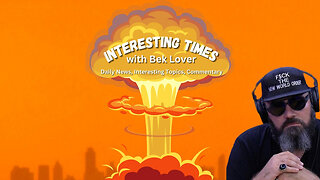 1:03:14
1:03:14
Bek Lover Podcast
11 hours agoInteresting Times with Bek Lover Podcast
1.71K1 -
 3:10:10
3:10:10
Price of Reason
13 hours agoTrump is BACK in Action! Elon Musk's Inauguration Gesture Draws MSM Fire! Disney Prepares For LOSSES
27.9K4 -
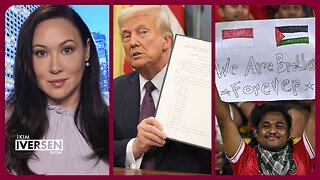 2:08:22
2:08:22
Kim Iversen
12 hours agoIs This Even Legal? Trump’s Push to End Birthright Citizenship and The Insane Plan to Move Palestinians to Indonesia
127K264 -
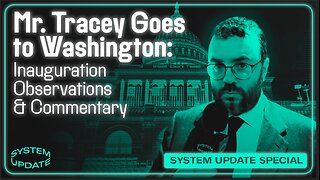 1:27:06
1:27:06
Glenn Greenwald
12 hours agoMr. Tracey Goes To Washington: Inauguration Observations, Interviews & Commentary | SYSTEM UPDATE #393
161K57 -
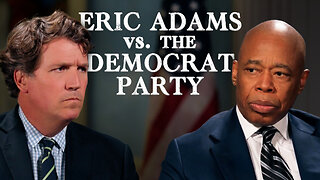 52:01
52:01
Tucker Carlson
16 hours agoNew York Mayor Eric Adams Sounds a Lot Like a Trump Voter
234K215 -
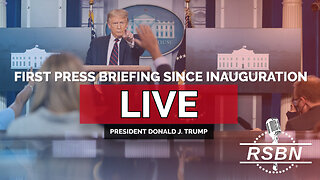 2:47:25
2:47:25
Right Side Broadcasting Network
15 hours agoLIVE REPLAY: President Donald J. Trump Holds First Press Briefing Since Inauguration - 1/21/25
255K214 -
 1:08:45
1:08:45
Man in America
14 hours agoTrump UNLEASHED! Dismantling the Deep State and Restoring America
58.2K74 -
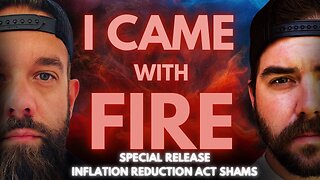 27:22
27:22
I_Came_With_Fire_Podcast
16 hours ago🔥SPECIAL RELEASE🔥 Inflation Reduction Act: American Seniors Get SLAMMED!!
75.7K11 -
 6:25:28
6:25:28
vivafrei
15 hours agoD.C. Gulag Jan. 6 Prisoners Release Watch!
243K113